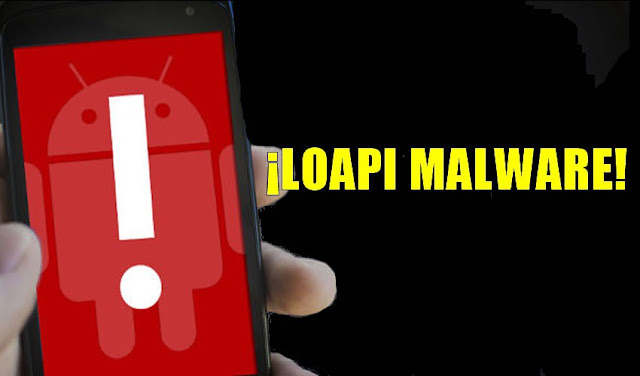Loapi ! An android malware that will physically hurt your device
Researchers at
Kaspersky Lab have identified a family of modular Android malware dubbed
"Loapi" which is capable of mining the Monero cryptocurrency,
inundating users with advertisements, automatically subscribing the user to
paid services, and participating in DDoS attacks, among other functions. A
surreptitious cryptocurrency miner that's so aggressive it can physically damage
an infected phone.
The cryptocurrency
mining module maintains a load sufficiently high enough to cause physical
damage to a test device after two days the above photo shows a device which
overheated to the point the battery bulged.
Trojan.AndroidOS.Loapi
is hidden inside apps distributed through third-party markets, browser ads, and
SMS-based spam and according to the researchers, the malware is distributed
through advertising campaigns, and is generally disguised as either an
antivirus or pornographic app.
Over the past few
months, a surge of sites and apps have been caught draining people's CPUs
and electricity as they run resource-intensive cryptocurrency mining code. In a
handful of cases, the apps or sites disclose what's happening, throttle down
the mining, and ask users to participate as a form of payment. In the vast
majority of cases, however, the mining is only discovered when users open
monitors that track all processes or apps running on a device.
After installation,
the malware asks the user to grant administrator permissions in a loop until
the permissions are granted. It also checks for but does not use root
permissions.
However, given the modular nature of the malware, this could be
used in the future.
Loapi can
communicate with a number of command & control servers. These servers can
load additional modules and receive lists of apps which may attempt to remove
or limit the permissions granted to the malware. If these apps are installed,
the malware flags the legitimate security app as malware and forces a loop
prompting the user to remove the security app until the user acquiesces.
The malware also
locks the screen and closes the device manager, warning the user that the phone
data will be wiped.
Given the
encumbrances to removing the app on the phone, the best course of action is
likely to uninstall via adb. There is no indication that the malware has been
distributed via Google Play. That said, installing mysterious apps from unknown
sources is not advisable.






Comments
Post a Comment